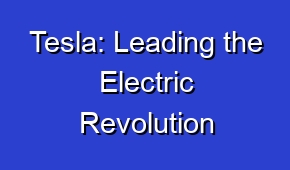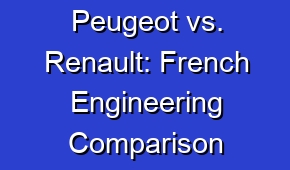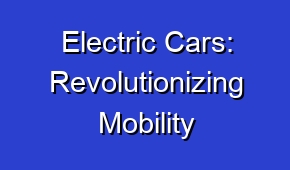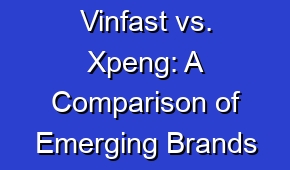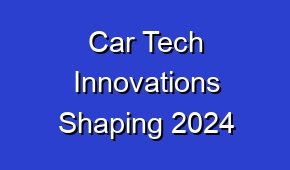Volkswagen’s Electric Future: Exploring the Next Generation
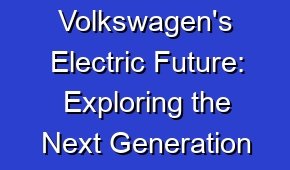
Discover Volkswagen’s exciting electric future as we delve into the innovative technologies and advancements driving their electric vehicle lineup. From cutting-edge designs to enhanced performance and sustainability, Volkswagen is paving the way for a greener automotive industry. Join us as we explore the electrifying possibilities that await in Volkswagen’s electric future.
Volkswagen’s electric future is being explored as the automotive giant embraces the shift towards sustainable mobility. With electric vehicles gaining popularity and governments worldwide pushing for cleaner transportation options, Volkswagen is committed to leading the charge in this green revolution. Through extensive research and development, Volkswagen aims to deliver cutting-edge electric cars that offer exceptional performance, efficiency, and environmental friendliness. By leveraging advanced technologies and innovative design, Volkswagen is poised to redefine the driving experience and set new benchmarks in the realm of electric mobility. As part of its forward-thinking strategy, Volkswagen is investing heavily in electric vehicle infrastructure and charging networks to ensure convenient access for EV owners. With its unwavering commitment to a sustainable future, Volkswagen is driving the transformation towards emission-free transportation, making electric vehicles an accessible reality for all.
| Volkswagen’s electric future explored: |
| Volkswagen is investing heavily in electric vehicles to shape the future of mobility. |
| The company aims to have electric cars make up 70% of its sales in Europe by 2030. |
| Volkswagen plans to launch more than 70 electric models by 2028. |
| Their electric vehicles will be built on the modular electric drive matrix (MEB) platform. |
| Volkswagen’s electric cars offer zero emissions, contributing to a cleaner environment. |
- Volkswagen’s commitment to sustainability includes a focus on electric mobility.
- With their electric future, Volkswagen aims to reduce carbon emissions and dependence on fossil fuels.
- The company is investing in charging infrastructure to support the growth of electric vehicles.
- Volkswagen’s electric cars offer impressive acceleration and performance.
- Through their electric initiatives, Volkswagen aims to revolutionize the automotive industry.
What is Volkswagen’s plan for electric vehicles?
Volkswagen has made a significant commitment to the future of electric vehicles. The company has set a goal to become a leader in the electric car market and plans to launch dozens of electric models in the coming years. Volkswagen aims to electrify its entire vehicle lineup by 2030, offering electric options for every model they produce. This ambitious plan includes investing heavily in research and development, as well as building a network of charging infrastructure to support widespread adoption of electric vehicles.
| Increased Production | Expansion of Charging Infrastructure | Introduction of New Models |
| Volkswagen plans to significantly increase the production of electric vehicles. | The company aims to expand the charging infrastructure globally to support the growing demand for electric vehicles. | Volkswagen plans to introduce several new models of electric vehicles in the coming years. |
| Investment in Battery Technology | Collaboration with Energy Providers | Sustainability Efforts |
| Volkswagen is investing in the development of advanced battery technology to enhance the performance and range of its electric vehicles. | The company is collaborating with energy providers to ensure the availability of renewable and clean energy for charging electric vehicles. | Volkswagen is committed to sustainability and aims to reduce its carbon footprint through the production and use of electric vehicles. |
How does Volkswagen’s electric future impact the environment?
The shift towards electric vehicles in Volkswagen’s future has positive implications for the environment. By transitioning from traditional combustion engines to electric power, Volkswagen aims to reduce greenhouse gas emissions and decrease reliance on fossil fuels. Electric vehicles produce zero tailpipe emissions, which helps improve air quality and combat climate change. Additionally, Volkswagen is committed to sourcing renewable energy for charging stations and manufacturing processes, further reducing their carbon footprint.
- Volkswagen’s transition to electric vehicles will significantly reduce carbon emissions. Electric vehicles produce zero tailpipe emissions, which helps to combat air pollution and reduce greenhouse gas emissions. By shifting away from traditional gasoline-powered cars, Volkswagen is contributing to a cleaner and healthier environment.
- The production of electric vehicles also has a lower environmental impact compared to conventional vehicles. The manufacturing process for electric vehicles typically involves fewer raw materials and produces less waste. Additionally, as the renewable energy sector continues to grow, the charging of electric vehicles will increasingly rely on clean energy sources, further reducing their environmental footprint.
- Volkswagen’s commitment to sustainability extends beyond just the production of electric vehicles. The company is investing in renewable energy projects and working towards a more circular economy by implementing recycling programs for batteries and other components. By embracing a holistic approach to sustainability, Volkswagen is striving to minimize its environmental impact and create a more sustainable future.
What are the benefits of Volkswagen’s electric vehicles?
Volkswagen’s electric vehicles offer several benefits compared to traditional gasoline-powered cars. Firstly, they have lower operating costs since electricity is generally cheaper than gasoline. Electric vehicles also require less maintenance due to fewer moving parts and no need for oil changes. Additionally, they provide a smooth and quiet driving experience with instant torque and reduced noise pollution. Finally, owning an electric vehicle contributes to reducing dependence on fossil fuels and promoting sustainable transportation.
- Environmental Benefits: Volkswagen’s electric vehicles produce zero tailpipe emissions, reducing air pollution and greenhouse gas emissions. This helps in combating climate change and improving air quality.
- Cost Savings: Electric vehicles have lower operating costs compared to traditional gasoline-powered cars. They require less maintenance, have lower fuel costs, and are eligible for various incentives and tax credits, leading to long-term cost savings for the owners.
- Improved Performance: Electric vehicles offer instant torque, providing a smooth and quick acceleration. They also have a lower center of gravity, resulting in better handling and stability.
- Reduced Noise Pollution: Electric vehicles operate quietly, reducing noise pollution in urban areas. This contributes to a more peaceful and pleasant driving experience for both the occupants and the surrounding community.
- Technological Advancements: Volkswagen’s electric vehicles feature advanced technologies, including regenerative braking, energy-efficient systems, and connectivity options. These innovations enhance the driving experience and provide a glimpse into the future of automotive technology.
How does Volkswagen plan to address range anxiety with their electric vehicles?
Volkswagen recognizes that range anxiety, the fear of running out of battery power while driving, is a concern for potential electric vehicle owners. To address this, the company is investing in advanced battery technology to increase the range of their electric vehicles. They are also expanding the availability of fast-charging infrastructure, allowing drivers to recharge their vehicles quickly and conveniently during long journeys. Volkswagen aims to provide electric vehicles with sufficient range to meet the needs of most drivers, alleviating range anxiety concerns.
| Increased Battery Capacity | Expansion of Charging Infrastructure | Improved Range Estimation |
| Volkswagen plans to equip their electric vehicles with larger battery capacities, allowing for longer driving ranges. | The company is actively working on expanding the network of charging stations, making it more convenient for electric vehicle owners to charge their cars. | Volkswagen aims to improve the accuracy of range estimation systems in their electric vehicles, providing drivers with more reliable information about how far they can travel on a single charge. |
| This will help alleviate range anxiety as drivers will have more confidence in the distance their electric vehicles can cover. | With a wider availability of charging stations, drivers will have more options for recharging their electric vehicles, reducing the fear of running out of power. | By improving range estimation accuracy, Volkswagen aims to provide drivers with a better understanding of their electric vehicle’s remaining range, minimizing range anxiety. |
What is Volkswagen’s strategy for charging infrastructure?
Volkswagen understands that a robust charging infrastructure is crucial for the widespread adoption of electric vehicles. As part of their electric future plans, the company is working on building a comprehensive network of charging stations. They are collaborating with various partners to install charging points at key locations such as highways, parking lots, and residential areas. Volkswagen is also exploring innovative solutions like high-power charging stations to reduce charging times and improve convenience for electric vehicle owners.
Volkswagen’s strategy for charging infrastructure involves expanding their network of fast-charging stations and investing in advanced charging technologies.
How will Volkswagen’s electric vehicles impact the automotive industry?
Volkswagen’s commitment to electric vehicles is expected to have a significant impact on the automotive industry. As one of the world’s largest automakers, their transition to electric power will likely accelerate the overall shift towards sustainable transportation. Volkswagen’s investment in electric vehicle technology and infrastructure will drive innovation and competition in the market, encouraging other manufacturers to follow suit. This shift towards electrification is also expected to create new job opportunities in areas such as battery manufacturing, software development, and charging infrastructure installation.
Volkswagen’s electric vehicles are expected to have a significant impact on the automotive industry, driving the transition to sustainable transportation.
What challenges does Volkswagen face in achieving their electric future?
While Volkswagen has ambitious plans for its electric future, there are several challenges they must overcome. One major challenge is the development of advanced battery technology that offers longer ranges and faster charging times. The availability and affordability of raw materials for batteries, such as lithium, also pose challenges. Additionally, building a comprehensive charging infrastructure requires significant investment and collaboration with various stakeholders. Lastly, consumer acceptance and education about electric vehicles remain important factors in achieving widespread adoption.
1. Infrastructure development
Volkswagen faces the challenge of building a robust charging infrastructure to support the widespread adoption of electric vehicles. This involves investing in the installation of charging stations in various locations, such as public spaces, workplaces, and residential areas. Additionally, ensuring compatibility and standardization of charging systems is crucial to facilitate convenient and efficient charging for customers.
2. Battery technology and production
Another challenge for Volkswagen is to develop and produce advanced and cost-effective batteries for their electric vehicles. Improving battery technology is essential to enhance the driving range, charging speed, and overall performance of electric cars. Additionally, scaling up battery production capacity to meet the increasing demand for electric vehicles is a significant challenge that Volkswagen needs to address.
3. Market competition and consumer acceptance
Volkswagen faces competition from other automakers in the electric vehicle market. It is crucial for Volkswagen to differentiate their electric models and offer attractive features, pricing, and incentives to stand out in the market. Moreover, consumer acceptance and adoption of electric vehicles are influenced by factors such as range anxiety, charging availability, and perceived value for money. Volkswagen needs to address these concerns and educate consumers about the benefits and convenience of electric vehicles to drive widespread adoption.
